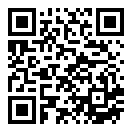خلاصة المحتویات
Article data in English (انگلیسی)
خلاصة المحتویات
الشروط اللازمة لبناء علاقة مع المتربی من وجهة نظر امیرالمؤمنین علی(علیه السلام)
الدکتور عباس علی شاملی
یُعد الامام علی(علیه السلام) أول من وضع حجر الاساس لاروع و أدق و اکمل نظام تربوی على الاطلاق، ألا و هو النظام التربوی العلویّ. و قد أشار سماحة السید القائد الخامنائی الى هذا المعنى فی معرض حدیثه عن شخصیة أمیرالمؤمنین(علیه السلام) بقوله ان الامام علی(علیه السلام) هو المثل الاعلى للانسانیة قاطبة. و لذلک یمکننا القول بان الامام علی(علیه السلام)لیس قدوة الشباب المسلم فحسب انما هو قدوة کل من یرید السیر على نهجه.
تتناول المقالة بحث ما تضمنه الکتاب الحادی و الثلاثون من کتب امیرالمؤمنین(علیه السلام) الى عماله فی الامصار المختلفة فی نهج البلاغة.
یتضمن الکتاب نقاطاً بالغة الاهمیة یسترشد بها المربی فی تجربته التربویة و فی تعامله مع المتربی، و لذا فان العنوان المناسب للارشادات الواردة فی هذا الکتاب هو الشروط اللازمة لبناء علاقة مع المتربی.
دور الوالدین فی التربیة الاخلاقیة: دراسة تحلیلیة اجتماعیة
جودث جی سمتانا
ترجمة: غلام رضا متقی فر
تعرض المقالة تحلیلاً ـ من وجهة نظر علم الاجتماع ـ للدور الذی یلعبه الوالدان فی تنمیة القیم الاخلاقیة لدى الاطفال. ترى المقالة بأنه على الرغم من ان التفاعل الاجتماعی بین الافراد یمثل عاملاً مهماً فی بناء النظام الاخلاقی إلا ان ما یملکه الوالدان من عواطف و وعی فی تعاملهما مع اطفالهما یعدّ من العوامل المهمة التی تسهّل عملیة التربیة الاخلاقیة للاطفال، کما ان للجوّ العاطفی الذی یوفره الوالدان اثراً على مدى استجابة و امتثال الابناء لارشادات الوالدین اضافة الى ذلک یمکن ان یؤثر نوع العاطفة التی یبدیها الوالدان فی مقابل تجاوزات الابناء على مدى استیعاب الاطفال لارشادات الوالدین و تذکرهم للحوادث. و على الرغم من ان التجارب الاخلاقیة للوالدین مع ابنائهما غالباً ما تحدث لاطفال ذوی اعمار متقاربة الا انه ینبغی على الوالدین اتخاذ مواقف خاصة یراعى فیها طبیعة سلوک الاطفال الامر الذی یساعد على توفیر آلیة نجاح عملیة التربیة الاخلاقیة. ان دور الوالدین یمکن ان یعّزز قدرة الابناء على استیعاب دور التربیة الاخلاقیة و ذلک عن طریق توفیر الارضیّة المناسبة و تنمیة قدرة الاستدلال الدقیق و توضیح الجوانب الاجتماعیة المختلفة فی حیاة الطفل و التی یمکن ان تلعب دوراً مهماً فی بلورة نظرة اخلاقیة افضل. تتضمن المقالة استنتاجات الکاتب المبنیّة على ملاحظاته للبیئة الاجتماعیة مع تحلیل لها فی اطار رؤیة علم الاجتماع للموضوع.
العناصر الاساسیه للتوجیه و المشورة فی نظر الاسلام
محمد رضا مطهری
تسعى هذه المقاله لبیان و شرح اسس التوجیه و المشورة و نظرة الاسلام حول هذا الموضوع و ذلک بالاستناد الى الایات القرآنیة و روایات و سیرة المعصومین و کذلک آراء المفکرین.
تحظى العناصر الاساسیة لأّى علم باهمیة خاصة، فهی بمثابة حجرالاساس لذلک العلم. ان اساس نشاطات و طرق التوجیه و المشورة یقوم على هذه العناصر الاساسیة و ان هذه الاخیره تحدد اتجاه نشاطات و طرق و فنون المشورة. ان عملیة التوجیه فی الاسلام تعمد على الاسس التالیة: الکرامة، الاختیار، المسؤولیة الانسانیة، البحث عن الکمال، الفوارق الفردیة، اعتماد التعاون و العون کاساس للتوجیه بدلاً من التحکّم و القسر.
یتناول الکاتب بحث هذا الموضوع بشکل مفصل.
ABSTRACTS
The Educational Prerequisits for Building Ties with the Educated and Imam Ali¨s Viewpoint
Dr. Abbas Ali Shamili
The Alawi educational ideas i.e. introduced by Imam Ali, are unequalled and most perfect, and as the grand leader once said "Imam Ali (upon him be peace) is a perfect example for all". This implies that he is a good example for the young Muslims and also for those who seek to emulate Imam¨s course.
The close study made by the writer of Imam¨s letter number thirty - one in Nahjul Balaghah marks a number of eductional principles, which are valuable broad lines for the educaters who seek to buid educational ties with those being educated. These principles come under the heading: educational prerequisites for building ties with the educated.
The Role of Parents in Moral Development: a social domain analysis
Judith G. Smetana
trans: Gholam Rida Motaqi - fer
This article provides a social domain theory analysis of the role of parents in moral development. Social knowledge domains, including morality as distinct from other social concepts, are described. Then, it is proposed that, although morality is constructed from reciprocal social interactions, both affective and cognitive components of parents interatcions with their children may facilitate children¨s moral development. The affective conext of the relationship may influence children¨s motivation to listen to and respond to parents; in addition, affect associated with responses to transgressions can affect children¨s encoding and remembering of those events. Although moral interactions occur frequently in peer contexts, parents¨ domain - specific feedback about the nature of children¨s moral interactions are proposed to provide a cognitive mechanism for faciliating moral development. Parents promote children¨s moral understanding by providing domain appropriate and developmentally sensitive reasoning and explanations about the child¨s social world, which may stimulate the development of more mature moral thought. Various findings from the socialisation literature are presented and interpreted from within the social domain framework.
The Fundamental Principles of Guidance and Counselling in the View of Islam
Muhammad Rida Muttahari
This article, which makes use of such references as the Holy Qur¨an, the traditions and lifestyle of the Infalliables and Muslim thinkers¨ views, seeks to bring out the fundamental principles of guidance and counselling as viewed by Islam.
The principles of a science are of great influence; they constintute the foundation of that science. The soundness of the activities and methods of guidance and counselling depends on the principles of the science. In fact, these principles determine the course of the methods and techniques of counselling and play an effective role in guidance and counselling. According to Islam, the basic elements of guidance are: dignity, free will, man¨s being responsible, taking care of all aspects of man¨s existence, seeking human perfection, individuals¨ different potentials, coordination and cooperation as the bases of guidance, not commanding and force.





